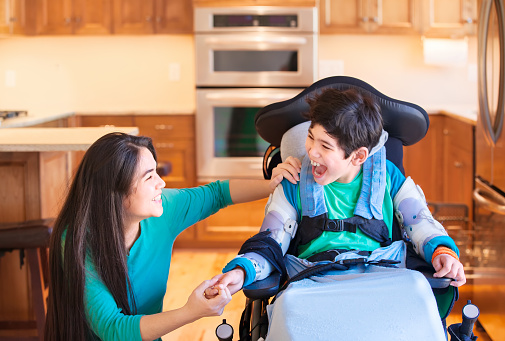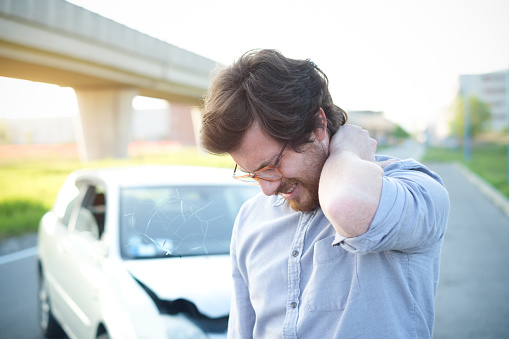
by Charlie Smith | Apr 20, 2018 | Blog, Compensation, Personal Injury Lawyer |
Cerebral palsy is a common motor disorder that occurs in roughly 1 1/2 to four of every 1,000 births. Although cerebral palsy can occur naturally, it may also be the consequence of medical negligence. This situation is usually the case when doctors fail to diagnose or treat a condition or use birthing tools incorrectly. This failure can injure a newborn and lead to the development of cerebral palsy. What Is Cerebral Palsy? Cerebral palsy is a motor disorder that affects muscle control. A person who has this condition may have trouble walking and coordinating movements. At birth, cerebral palsy is usually the result of insufficient oxygen to the brain, abnormal brain development, or an infection during pregnancy. Cerebral palsy may also be a complication due to a difficult or premature birth, or it may be due to restricted intrauterine growth. Side effects associated with the disorder include the following: Trouble swallowing Speech impediment Breathing problems Learning disabilities Seizures Can Cerebral Palsy Be Caused by Negligence? Although cerebral palsy may occur due to natural complications, it may also be the cause of doctor and hospital errors. For example, a medical professional may fail to follow proper medical procedures and injure an unborn child. Failure to deliver the infant correctly and depriving the child of oxygen are the most common causes of cerebral palsy due to negligence. Doctors and hospitals may also fail to react to a complication promptly or may fail to render proper care, thus permanently damaging the child’s brain and leading to the development of cerebral palsy. For example, an infection or similar medical issues may be incorrectly...

by Charlie Smith | Apr 8, 2018 | Automobile Accident, Blog |
Being hit by a bus or injured on one during your daily commute is a terrifying moment. You’ll need to follow a few steps immediately to make sure you’re safe and you receive treatment for any injuries. But you also need to follow a few best practices to protect your rights and hold the responsible party accountable for the accident. If you’re injured on a bus or hit by a bus, follow the steps below. Contact Emergency Services Your safety and other passengers’ safety are the immediate priorities following a bus accident. The driver should contact emergency services immediately, but if the driver doesn’t or can’t, call 911. Since buses are larger than many vehicles on the road and carry several passengers who are either standing during a collision or sitting without seat belts, a high likelihood of injuries can occur with these events. Document the Accident If you can, take notes about the events leading up to the accident. You should also take photos if safe to do so and collect the contact information of any witnesses. An attorney can help you gather other evidence, such as the police report, to help document the accident. Get Medical Attention Regardless of how you feel after a bus accident, seek medical attention. Even if you don’t feel hurt, you may have been injured, and the symptoms may not have presented themselves yet. When you visit a doctor, you’ll also get an official medical report. Documenting the extent of your injuries and demonstrating that you did seek medical attention are vital to securing compensation for injuries you experienced following a bus...

by Charlie Smith | Mar 22, 2018 | Automobile Accident, Blog, Personal Injury, Personal Injury Lawyer |
Being hit by another driver is a terrifying moment, and if alcohol was involved, it can be even more difficult to know how you should proceed. You’ll need to file an insurance claim just like you would in any other accident, but you should also consider working with an attorney. A specialist who is familiar with the laws in your state can help you navigate your insurance policy, seek a settlement from the other party’s insurance, and, if needed, take your case to court. Follow these steps if you’re in an accident involving a drunk driver. Call the Police You’re required to call the police and report an accident in certain situations, such as if a personal injury occurs or there is significant property damage. Regardless of the requirements in your state, however, having police on the scene can help you get insurance information and communicate with the other driver and witnesses. If alcohol is involved, the police report and the officer’s testimony will be vital evidence when you file a claim. Take Notes and File an Insurance Claim Once you’ve confirmed that everyone is safe and you’ve called the police, gather information about the accident. This should include taking photos of the damage and collecting contact information from the other driver and any available witnesses. You should also note the road conditions, the stop lights and other road signs you followed, and the other driver’s condition. You can then report the accident to your insurance company. Your insurer will provide compensation for repairs to your vehicle, medical expenses, and other related costs. Your insurance company will charge the...

by Charlie Smith | Mar 11, 2018 | Blog, Cruise Injuries, Personal Injury |
Getting the care you need at home following an injury can be a difficult process. If you’re hurt while on a spring break cruise, you may have an even harder time understanding your health insurance coverage and getting the treatment that you need. If you’re planning on spending some time at sea this spring, make sure you follow these steps if you’re injured. Report the Accident From slips and falls to more serious events such as assaults, injuries do occur on cruise liners. No matter the severity or type of injury, your first step should be to report the accident to the cruise line as soon as possible. Before you leave the port on your trip, check the company’s policy for reporting and responding to an accident. Do your best to follow these requirements. Finally, take notes about what happened and keep all documents and information related to the injury, such as medical reports. Document the Accident As with any type of injury, you should document the event thoroughly as soon as it’s safe to do so. Take photos if possible, collect witness contact info, and record what led to and caused an accident. You should also note the company’s response and any treatment that you received. Your documentation may be used to help prove that the cruise line acted negligently and contributed to your injury. Seek Medical Attention No matter the severity of an injury, you should seek medical attention to help you document the accident and subsequent damages. Your initiative will also prevent the company from claiming that since you didn’t see a doctor, you must not...

by Charlie Smith | Feb 16, 2018 | Blog, Personal Injury |
Negligence describes a scenario wherein a person acts carelessly, which results in an injury or property damage to another party. It’s perhaps the most common of the personal injury lawsuits, but it’s also one of the most difficult to prove in a court of law. What Constitutes Negligence? Negligence is the failure to use reasonable care, resulting in damage or injury to another. The most difficult part of negligence cases is determining reasonable conduct. For example, a driver must exercise the same care that a “reasonable person” would in the same situation, which includes driving according to traffic laws and being aware of other drivers and pedestrians. If a driver fails to wear his glasses and injures someone, they can be considered negligent because a “reasonable person” wouldn’t forget to wear their glasses. Reasonable conduct is the basic legal standard for figuring out who is at fault. To ascertain reasonable conduct, both parties must analyze the circumstances of the incident and determine what a reasonable person would have done in the situation. Negligence and the Burden of Proof In claims that are a direct result of accidents or injuries, the burden of proof lies on the plaintiff. To win a case and prove negligence on behalf of the defendant, a plaintiff must prove duty, breach, causation, and damage. This essentially states that the defendant had a certain duty, broke the responsibilities of the duty, caused an injury or property damage, and are liable for damages. Criminal vs. Civil Cases and Negligence One aspect that makes winning a negligence case easier than a criminal case is that you don’t have to...







